
Carolyn Gramling is the Earth & Climate writer at Science News. Previously she worked at Science magazine for six years, both as a reporter covering paleontology and polar science and as the editor of the news in brief section. Before that she was a reporter and editor at EARTH magazine. She has bachelor’s degrees in Geology and European History and a Ph.D. in marine geochemistry from MIT and the Woods Hole Oceanographic Institution. She’s also a former Science News intern.

Trustworthy journalism comes at a price.
Scientists and journalists share a core belief in questioning, observing and verifying to reach the truth. Science News reports on crucial research and discovery across science disciplines. We need your financial support to make it happen – every contribution makes a difference.
All Stories by Carolyn Gramling
-
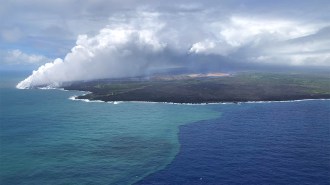 Earth
EarthHow Kilauea’s lava fed a massive phytoplankton bloom
Kilauea’s heavy flow of lava into the ocean in 2018 added both food and heat to fuel a sudden bloom of ocean algae.
-
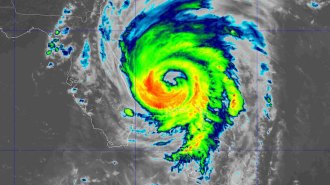 Earth
EarthHurricane Dorian’s slow pace makes it dangerous and hard to predict
Hurricane Dorian is one of several recent hurricanes that moved extremely slowly. Whether that's due to climate change isn't yet clear.
-
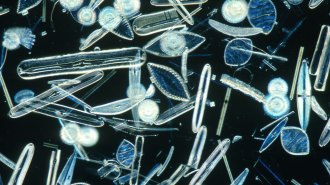 Earth
EarthOcean acidification could weaken diatoms’ glass houses
Ocean acidification may lead to smaller, lighter diatoms in seawater, which could also shrink how much carbon the tiny ocean algae can help sequester.
-
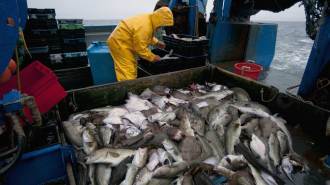 Climate
ClimateMercury levels in fish are rising despite reduced emissions
Climate change and overfishing can increase how much mercury accumulates in fish, counteracting efforts to reduce human-caused emissions.
-
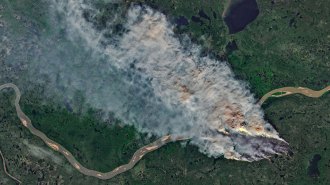 Climate
ClimateThe Arctic is burning and Greenland is melting, thanks to record heat
A heat wave is melting Greenland’s ice and fueling blazes across the Arctic that are pumping record amounts of carbon dioxide into the air.
-
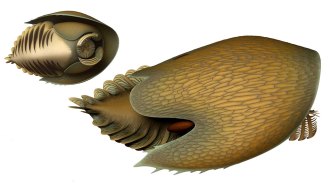 Paleontology
PaleontologyThis newfound predator may have terrorized the Cambrian seafloor
A newly discovered spaceship-shaped predator raked through the Cambrian seafloor in search of food.
-
 Climate
ClimateHow today’s global warming is unlike the last 2,000 years of climate shifts
Temperatures at the end of the 20th century were hotter almost everywhere on the planet than in the previous two millennia.
-
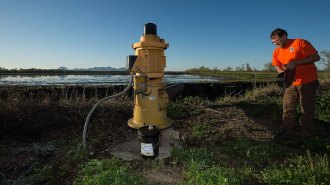 Earth
EarthU.S. wells are pumping up groundwater from increasing depths
Around the United States, groundwater wells are getting deeper in search of new sources of freshwater, a new study shows.
-
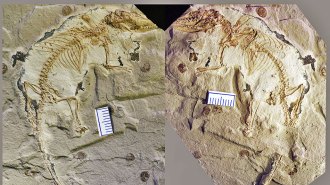 Paleontology
PaleontologyA flexible bone that helps mammals chew dates back to the Jurassic Period
A flexible bone that helps with chewing may have helped give rise to the Age of Mammals, a new fossil shows.
-
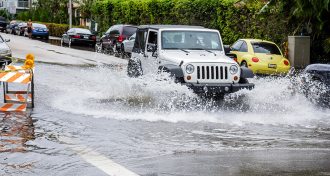 Climate
Climate‘Sunny day’ high tide floods are on the rise along U.S. coasts
Sea level rise led to record-breaking tidal flooding in cities along the U.S. East Coast, a NOAA report found.
-
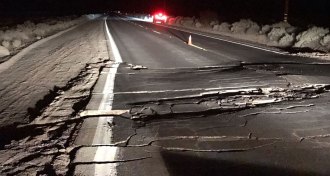 Earth
Earth3 questions seismologists are asking after the California earthquakes
After back-to-back quakes, scientists are scrambling to figure out which faults ruptured and what it means for future California quake activity.
-
 Paleontology
PaleontologyAn ancient bird found encased in amber had a bizarrely long toe
A 99-million-year-old fossil holds a bird with an oddly long toe, which might have helped the critter hook hard-to-reach dinners.